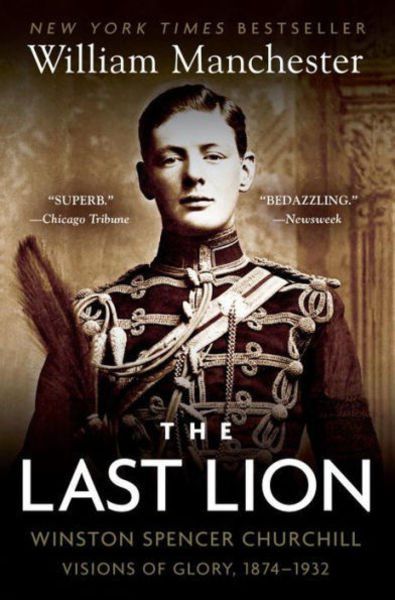BOOK REVIEW: The Last Lion: Visions of Glory by William Manchester
Published 9:30 am Saturday, February 2, 2019

- The Last Lion: Visions of Glory
Winston Churchill applied the same characteristics as a schoolboy that made him a pain in the side of Adolf Hitler.
Young Winston was stubborn and defiant in school, even when threatened with failure, expulsion and his father’s wrath. Even though a lonely boy, Churchill was Churchill.
Trending
It is only one of the many insights in William Manchester’s epic, “The Last Lion: Winston Spencer Churchill Vol. I: Visions of Glory: 1874-1932.”
With that much title, the book better be as good as it is thick.
And it is superb, all nearly 900 pages that take readers from Churchill’s birth to the British descendants of the Dukes of Marlborough and an American mom up until middle age and what would be for many public men the end of the career, but for Churchill is the entrance into his “Wilderness” years.
Manchester opens with a nearly 50-page preamble on Churchill’s life and character.
He pens what is arguably the best 50 pages on Churchill’s life in its entirety.
He captures the multi-faceted essence of Churchill.
Trending
The next 50 pages is a beautiful hodge-podge history of all things Victorian — London, the Empire, India, trade, music, Queen Victoria, and the British landscape and zeitgeist when Churchill was born.
The history flows into the meeting, courtship and marriage of Winston’s parents, then Winston’s birth, his lonely childhood seeking the affection of his socially busy and well-connected parents, his hardships upon being sent off to school, showing signs of potential genius though often considered unruly by his school masters.
Churchill moves from school to the military where he performs the nearly impossible feat then and now of juggling being a soldier, a journalist and a neophyte politician simultaneously — fighting in, reporting on and politicizing the same military endeavors.
Though criticized for what is easily multiple conflicts of interest, Churchill, with help from his mother and her influential male friends, was able to continue doing almost anything he liked.
His father died a slow death, suffering from syphilis, as well as rising to high levels within the British
Parliament only to see his career dashed — a victim of the irrationality of his debilitating illness and his political foes.
Though his father was cruel to him, Winston took revenge against his father’s political enemies by opposing and thwarting members of his party then switching parties.
Churchill became known for his writing, his military adventures and his political stances which could be courageous and outrageous, but often more well reasoned than not.
His political career was nearly destroyed during World War I — and many politicians would have never been able to survive, let alone bounce back and thrive.
As First Lord of the Admiralty, Churchill was blamed then and often still for the massive loss of life in the Dardanelles and Gallipoli.
Manchester writes that Churchill should not shoulder the brunt of the blame that it belongs to others or should at least be distributed more equally among others.
Churchill lost his position over the British navy. He was shunned. He received command over a small number soldiers in the trenches on the Western Front.
He returned to politics.
He survived then began to thrive again.
Manchester writes with wit and eloquence. Pages fly by in this history.
He writes with a novelist’s eye, the historian’s precision, the analyst’s insight and the newspaper columnist’s willingness to state opinion.
“Visions of Glory” was published in the 1980s. It is the first volume in Manchester’s trilogy on the life of Winston Churchill. The epic continues.





